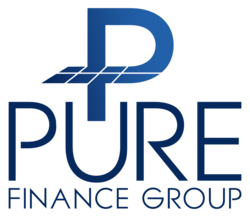
What’s the best guidance for home improvement loans? Start here.
If you’re looking for home loan guidance for home improvements, knowing which types of financing work best for you and your project can be challenging. Regardless of the type of loan you apply for to cover the cost of your renovations, you’ll first need to get a general figure on how much you’re planning to spend. The first piece of home loan guidance for home improvements is to gather a few detailed bids from prospective contractors, including labor and materials. A good standard for estimating is to add some cushioning of about 20-30% to make sure you’re prepared for any unexpected expenses. So, what exactly are your options for financing your home improvements?
Our Best Home Loan Guidance For Home Improvements
A Loans
- Home Equity Loans: Like a conventional mortgage, you’ll be able to get a lump sum upfront to cover the costs of your renovations, but you’ll have 15 to 30 years to pay it off. They’re easy to budget for and typically have fixed interest rates.
- Home-Equity Lines of Credit: These loans are closer to having a credit card. You’ll get a maximum amount you’re allowed to borrow, but you’ll only be charged interest on the actual amount you spend. There can be some fine print since interest rates can fluctuate with the market. To get the best home loan guidance for home improvements, you should work with a professional finance group to ensure you’re getting the best loan possible.
FHA 203k Mortgages
- Energy-efficient Mortgage (EEMs): These mortgages are great if you want to make your home more energy-efficient! Since these types of improvements can reduce your monthly bills significantly, you’re more likely to be able to secure a larger loan.
- B & C Loans: If you don’t have perfect credit or don’t have a typical income flow, B and C loans could be a good option to finance your home improvements. A few different institutions offer these types of loans, like banks, finance companies, credit unions, and brokerages. This means you’ll be able to apply and compare terms. Be sure to read the fine print on these since they tend to have higher interest rates.
- Personal Loans: Existing mortgages and homes aren’t the only types of collateral you can use to secure a loan. You can apply for a personal home loan if you have other assets like a retirement or pension account, stocks, bonds, or a savings account. You can save on the additional costs that come with an appraisal, and the interest rates can also be reasonable.
Pure Finance Group Is Here to Give Home Loan Guidance for Home Improvements!
Thank you for your interest in Pure Finance Group. We’re so excited you’re here. For more information on how our lending services can help you with your home financing needs, give us a call (410-401-4957) or fill out the form on our contact page today. If you have a question about any lending services we provide including home improvement loans, we are here to help answer all your questions. Just give us a call (410-401-4957) or contact us today. To keep up-to-date with the latest financing tips and solutions, keep in touch with us on Facebook and LinkedIn!
